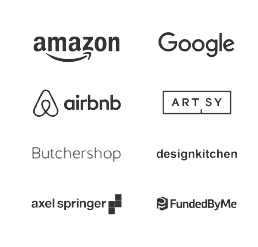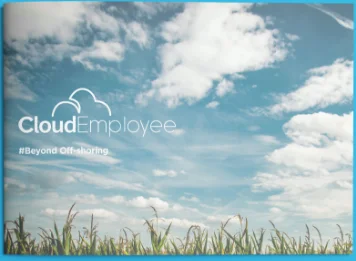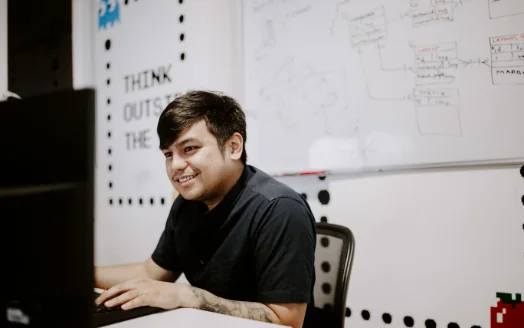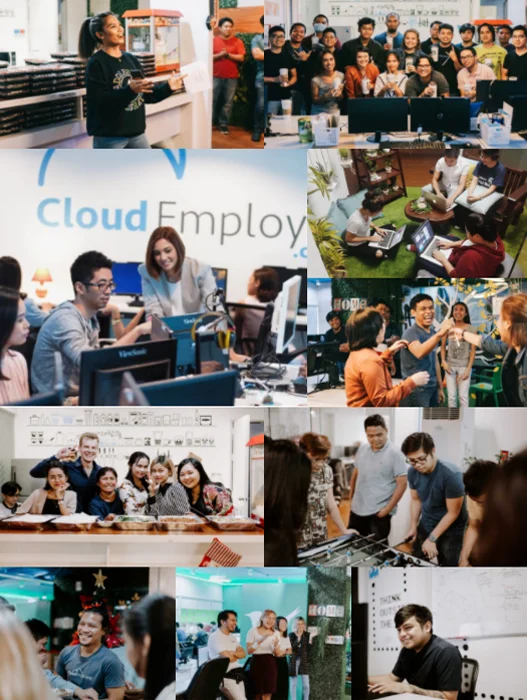Well, it's no longer news that the coronavirus pandemic is changing the mode of operation in many workplaces. As many organization adopt the remote work policy, adjusting to it has not been easy for many staff, their managers and business owners.
Faced with the challenge of procrastination, stay-at-home fatigue, and the hassle of managing team members from another zip code/timezone, it's almost like the remote work isn't what many thought it would be. If you are in this boat as a business owner or employee, maybe it's time to take a cue from those that have previously been in your shoes. Here are five Ted Talks that'll make you better at remote work.
Why working from home is good for business.
Before covid-19, most companies only ran a skeletal remote work operation. For example, an employee is on transit, perhaps a business trip, but still needs to log into the company's network from his hotel to do some important tasks. Or a staff recovering from an accident but is needed on occasions to administer his skill from home. Because there was no established remote mode of operation for most firms, switching quickly as a reaction to covid-19 wasn't seamless.
However, for Matt Mullenweg, CEO of Automattic and his team of nearly 1000 employees, it has always been remote-mode right from the start. So if there's anyone that can give you genuine tips on how to pull off the remote work operation, he's one of the perfect people for the job.
The levels of remote work.
Matt outlined what he referred to as the 5 levels of remote work, which sheds light on the different ways companies can accommodate remote work so that the business can keep running.
- Level 1 (Emergency)
This is the stage where employers are worried they are not entirely aware of what their employees are doing with their time at home as they are technically unsupervised. Because there aren't many work tools in place at this level, employers would want to limit the remote work mode as much as they can to emergencies and switch back when the need no longer exists.
- Level 2 (Copy of the Office)
Matt describes this stage as one where companies equip their staff with better remote work tools but still limit it to those who have genuine reasons or excuse to be at home. In this scenario, those allowed to work remotely are usually made to put in the same work hours as those working in a conventional office space, i.e., "copying of the office" dynamics.
Also, employers have an employee-tracking system like a periodic screenshot to capture what employee is working on. The disadvantage here is that employees feel choked, which may be counterproductive.
- Level 3 (Virtual Tools)
This is where employers provide more than just a tool for carrying out daily tasks. In this stage, employees have access to apps for collaboration, which allows seamless interaction with other colleagues. Some employees start to enjoy working from home, while others that are not comfortable with change will resist the new system or experiment if you are running a trial.
- Level 4 (Asynch)
Matt says this is where the magic of remote working begins when teams work asynchronously with more autonomy to decide how and when they want to work. Make no mistake; this isn't an avenue for employees to do whatever they like; it's creating a better relationship and trusting employees to do their bits with less supervision. Since employees have more freedom, Matt says employers can do better here by shifting from monitoring how employees work to their final output result.
- Level 5 (Nirvana)
This is a level that unlocks more freedom for employees, making it possible to design their day's operation around their life-style. This helps to achieve a perfect balance between work and personal life as remote work can upset that equilibrium quickly, especially with workers in different time zones.
10 ways to have a better conversation.
Celeste Headlee, a journalist with many years of experience, gave a helpful talk on how to improve communications, especially in these trying times where the success of remote work rests not just on expertise but also on effective communication with others many miles always. She shares the flowing tips and promises you'd be amazed.
- Avoid multitasking.
If you are not ready to have a conversation, then don't. If you must, just be in the moment. To truly converse well, avoid being half-in/half-out. For example, don't watch a video on the side when a zoom meeting is on.
- Avoid pontificating.
According to Bill Nye, everyone you'll come across knows at least one thing you are ignorant of. Therefore, enter every conversation with an intent to learn no matter how knowledgeable you are than the other party.
- Adopt open-ended questions.
This also means avoid asking polar questions, i.e., questions with yes or no answers. Polar questions don't allow room for further expressing oneself.
- Go with the flow.
Avoid trying to morph a conversation in a specific direction. Let conversations flow so that you can move with it. A new line of thought will emerge, which can make you know the other person more.
- It's okay if you don't know.
You don't have to be a know-it-all. Caution is a necessary skill for effective communication, so speak as accurate as possible, as if you are on record.
- Avoid equating people's experience with yours.
Everyone's experience is unique. You might think you are corroborating a story or information by trying to raise your version similar to their experience. Sometimes, it's seen as a way of making it all about you.
- Try not to repeat yourself.
Don't repeat yourself unless you are asked to do so. It's sort of condescending to repeat yourself just because you want the other person to notice how great your point is.
- Don’t dwell around weeds.
Unless a journalist is writing about your life history, people don't really care about information, like years, dates, etc., simply focus on the important stuff.
- Be brief.
A good conversation is like a good bra; small enough to attract interest, yet big enough to cover the "subject.”
- Listen.
I saved this for last because it's the most important. If you are not attentive or talk at the same time as the other person, it’ll lead to zero or partial communication.
Inside the mind of a professional procrastinator.
The procrastination struggle is real when it comes to remote working. The good thing is, you are not alone. Tim Urban, a blogger and Co-founder of ArborBridge, confesses about being one of the biggest procrastinators. Here is the advice he gave to those battling procrastination while working from home.
Tim designed a mental framework he referred to as the system of the procrastinator, which consists of the rational decision-maker(the rational thinker who does productive things, considers long term effect), instant gratification monkey(lives in the moment and cares only about fun and ease), panic monster(gets into the game when a deadline is near).
Beaded on the type of procrastination people experience, the components of the system comes into play. For example, if you procrastinate on complex things that have deadlines, your panic monster is triggered to help you solve the issue. On the other hand, if it's procrastination on things without a deadline, like starting your company, quitting drugs, eating well, visit your folks, your panic monster may never be triggered to help put a little accomplishment pressure on you.
This second type of procrastination may lead to future regret, depression, and unhappiness. Therefore, it's crucial to channel a conscious effort on addressing the things that you may be procrastinating and don't have a deadline.
How we'll fight the next deadly virus.
The swift action from Pardis Sabeti, a Harvard biologist and her team proved useful in the fight against the deadly Ebola virus. Perhaps, you are wondering how the work of a doctor and a molecular biologist will make you better at remote work.
Well, Sabeti's work and collaboration in the sequencing of the Ebola genome presented the need for similar collaboration between remote teams or employees as a way of ensuring business continuity and productivity in these trying times.
Confessions of a recovering micromanager.
Micromanaging is the practice of controlling every aspect of a task, no matter how little. Chieh Huang, a co-founder of Boxed.com, shares his experience on how he was able to stop following all of his employees' move. If you are a manager or business owner, the following are signs you micromanage, and there might be a need to stop if you truly want to get the best out of a remote work operation in this covid-19 era.
- You are control-obsessed, not outcome-focused
- conversations with you are like an examination to your team members.
- You approve of every decision.
Huang discovered how the habit of micromanaging affected his employees by caging their creativity and affected overall productivity. He concluded that the only way to ditch micromanagement as a manager is to take a leap of faith in trusting your team/employees.
We assist both developers looking for work and companies looking to hire dedicated offshore developers across many technologies. Talk to us, learn more how Cloud Employee works, or see our Developer Pricing Guide.
Work with world leading tech businesses
We connect high-performing software engineer talent in the Philippines with some of the world’s leading and most innovative Tech companies.
Submit CV













